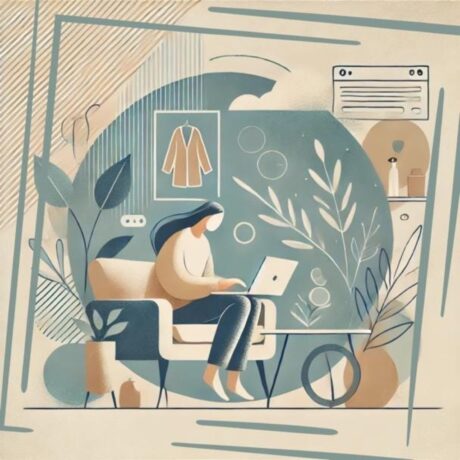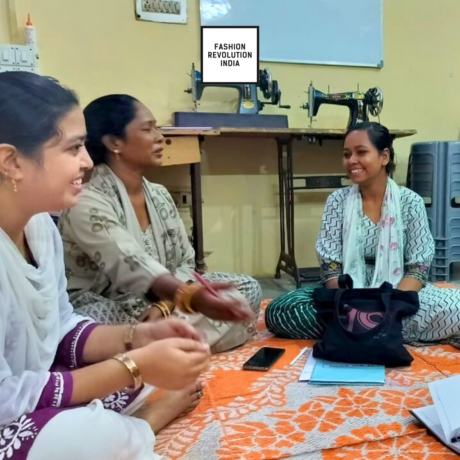Why Today is a Global Turning Point in the Fight to End Exploitation
Today, an estimated 25 million people are in forced labour (ILO and Walk Free 2016).
The hidden reality is that we are all affected by exploitation. Every one of us has likely used a product produced by someone trapped in conditions of forced labour.
International Justice Mission works to eradicate some of the worst forms of exploitation. One common form is forced labour.
Forced labour occurs when people are compelled to work, controlled by the use and threat of violence and by more subtle means, such as debt bondage.
Debt bondage is a lesser known type of exploitation, where ‘debts’ become invisible chains which the workers have no control over, and they are used as a threat to exploit workers for their labour and keep them trapped. The little money workers earn often goes to paying off the large amounts of debts, often fabricated or passed down the generations from a loan – often very small – taken out by relatives years ago. This vicious circle is further entrenched by widespread poverty and exacerbated by systems of race or caste-based discrimination which exploit the most underprivileged in society.
This is how International Justice Mission’s rescue teams found Chandramma in 2019:
 Chandramma was offered work at a silk farm. But what looked like a chance for stability and a better life for her young family, was in reality a job under false promises. She tried to escape twice, but both times she was caught, brought back and beaten up. She was punished, and trapped for 6 months in this hot, dark jail cell, with little food and almost no water. IJM’s investigators concluded this was a form of bonded labour. She and the other labourers were forced to work for 15-16 hour days twisting silk threads with one short break for food. Many of the workers developed skin diseases from the chemical exposure (see photo), and faced near-constant abuse from the heartless factory-owner.
Chandramma was offered work at a silk farm. But what looked like a chance for stability and a better life for her young family, was in reality a job under false promises. She tried to escape twice, but both times she was caught, brought back and beaten up. She was punished, and trapped for 6 months in this hot, dark jail cell, with little food and almost no water. IJM’s investigators concluded this was a form of bonded labour. She and the other labourers were forced to work for 15-16 hour days twisting silk threads with one short break for food. Many of the workers developed skin diseases from the chemical exposure (see photo), and faced near-constant abuse from the heartless factory-owner.
But with the help of IJM and local authorities Chandramma’s story ended with her being found and freed. Chandramma now takes pleasure in being able to provide for her young family with a fairly paid job as a wedding planner, and she’s become a strong community advocate against forced labour, read more of her powerful story here.
Forced labour, which is what Chandramma experienced, is woven into the fabric of our everyday lives, quite literally. It sneaks into the fashion industry in myriad ways – from children who are lured in with promises of free education to cotton pickers ensnared by debt bondage to boys like Ajay* who are tortured and beaten for making women’s high heels. In fact, 77% of UK businesses believe there is a likelihood of modern slavery at some stage in their supply chain (Ethical Trading Initiative 2016).

But we can do something about it.
Today, on October 18th, we mark Anti-Slavery Day, but this year – more than ever – the world is on a knife edge. Because of the pandemic, violence is increasing and vulnerable communities are at increased risk of exploitation from traffickers who trick and trap people.
In recent months International Justice Mission and other NGOs have witnessed an increase in forced labour and child labour in the garment and textile industry in South Asia.
But there is hope. IJM’s teams around the world actively investigate cases of violence, forced labour and human trafficking. IJM along with local partners have helped bring 53,000 men, women and children to freedom over the last two decades including more than one thousand from forced labour in garment factories. And the change is dramatic – IJM have even seen these abuses decrease by 86% in areas where we have worked. At the same time, IJM’s model is also a sustainable one: by building up local justice systems people can be protected from forced labour in these major industries in the long-term.
Despite the pandemic, IJM teams have refused to give up and continue to find and free people trapped in forced labour in the clothing industry. Just recently, a successful rescue operation brought nearly 1,200 young girls and garment workers to safety in Tamil Nadu state, where a recent IJM study suggests that as many as two thirds of workers in the textile industry (more than 230,000 people) are in bondage.
IJM was notified of the exploitative conditions in one of the biggest textile mills in the area, and upon investigation, found that workers were forced to make as many as 800 items of children’s clothing an hour. Conditions worsened when COVID-19 hit and the country went into lockdown, workers who asked to leave the factory to return home were continually refused by the owner. Incredibly, after weeks of tireless advocacy and through the combined intervention and support of IJM, partners and the local government, nearly 1200 people in total were able to leave multiple factories. Read full story here.

This story of rescue – one of many during lockdown – proves that we don’t have to let the exploiters win.
It can be tough to read stories of such brutality and unfairness. But, at IJM we know that even though this may be a moment of crisis, this is also unique opportunity – one where we can choose to build a world free from injustice and violence.

Survivors, like Pachaiyammal, are leading the movement to end forced labour. Pachaiyammal was trapped in a rock quarry in South India for twelve years, but today, she is the one sending rescue. Over the last few years, Pachaiyammal has personally led rescue operations as General Secretary of the Released Bonded Labourers Association (RBLA), bringing freedom to over 250 people. She is also a founding member of the Global Survivor Network, an international survivor-led initiative who desire and pursue safe communities through advocating for an end to bonded labour and violence.
Here lies the turning point: the chance to collectively change the story, to end forced labour, child labour, human trafficking and debt bondage together. To let justice and freedom win.
To choose, together, to make freedom for all the new normal – a new normal worth fighting for.
To stand up for our values, and to wear them on our sleeves, letting those values affect our lifestyles choices, purchases and habits.
Everyone has a part to play in this fight – what can you do, right now, to make a difference?
- Interrupt business-as-usual:
- Buy second-hand or do your research into ethical brands with these tips here www.ijmuk.org/slavefree or use other resources like the Good On You app which can all help you to see how brands rank in their commitment to upholding good labour standards.
- Organise a clothes swap with our Fashion for Freedom pack, or start upcycling or not buying at all!
- Investigate:
- Ask brands #WhoMadeMyClothes and read up on companies’ modern slavery statements.
- Inquire into what steps brands are taking to improve their due diligence and decrease the chances of child labour and forced labour. Ask them, “Do you publish your 2nd (processing facilities) and 3rd tier (raw materials) supplier lists to help NGOs and independent organisations perform due diligence around forced labour further down the supply chain?”
- Initiate change:
- Support organisations like IJM who work on the ground with local partners to end forced labour and modern slavery for good. Become a Freedom Partner and your regular giving will be used to fund rescue operations, and equip survivors like Pachaiyammal to advocate for an end to forced labour in their communities.
- Use your social media to spark conversations with friends and followers, and show your support by sharing this post by IJM and Fashion Revolution!
Follow and amplify the work of IJM on Facebook, LinkedIn, Twitter, and Instagram.
Banner image: Stock Image, Jeremy Snell for International Justice Mission








